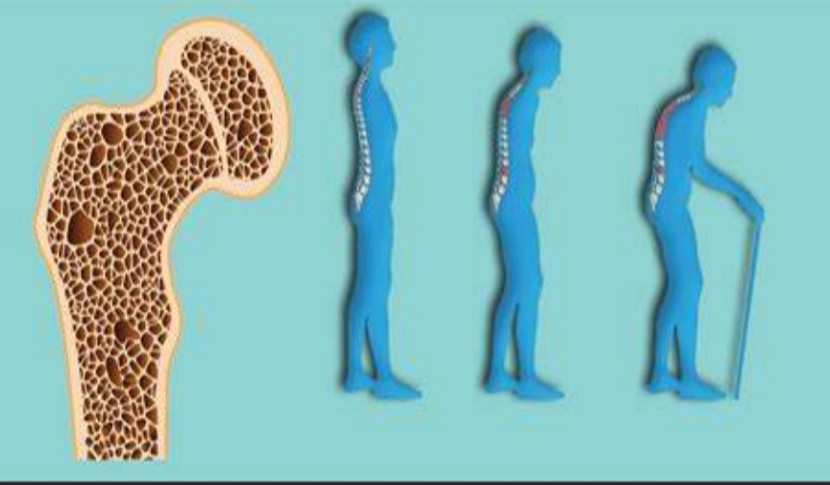The quest for the most effective weight loss method is a persistent human endeavor. Countless programs, diets, and exercise routines await our attention, each promising a magic bullet solution. However, the reality is far more nuanced. There’s no one-size-fits-all answer, and the “best” approach depends on many factors. Let’s delve deeper into the science of weight loss and explore effective strategies for achieving sustainable results.
Understanding the Weight Loss Equation:
At its core, weight loss boils down to a simple equation: calories in versus calories out. If you expend more energy than you consume, your body will tap into stored fat for fuel, leading to weight loss. However, this seemingly straightforward concept is influenced by a complex interplay of factors:
- Metabolism refers to the rate at which your body burns calories for basic functions like breathing and digestion. Individual variations in metabolism can impact weight loss.
- Genetics: Genes play a role in factors like body composition, hunger cues, and predisposition to weight gain.
- Hormones: Hormones like insulin and leptin influence appetite and how your body stores energy.
- Lifestyle: Sleep, stress levels, physical activity, and dietary habits significantly impact weight management.
The Downfall of Fad Diets:
Fad diets often promise rapid weight loss through extreme calorie restriction, elimination of entire food groups, or unconventional food combinations. While some might experience initial success, these approaches are rarely sustainable. Here’s why:
- Nutrient Deficiencies: Restrictive diets often lack essential vitamins, minerals, and fiber, leading to health complications and fatigue.
- Yo-Yo Dieting: The unsustainable nature of fad diets often leads to regaining lost weight, creating a frustrating cycle.
- Muscle Loss: Rapid weight loss plans can cause muscle loss along with fat, slowing metabolism and hindering long-term weight management.
The Pillars of Sustainable Weight Loss:
The most effective weight loss methods prioritize long-term health and sustainable habits. Here are some key pillars to consider:
- Focus on Whole Foods: Building your diet around whole, unprocessed foods like fruits, vegetables, whole grains, lean protein sources, and healthy fats provides essential nutrients, keeps you full, and supports overall well-being.
- Portion Control: Even healthy foods can contribute to weight gain if consumed excessively. Learning proper portion control is crucial for maintaining a calorie deficit. This might involve using smaller plates, measuring food, and practicing mindful eating.
- Mindful Eating: Developing a mindful relationship with food is essential. Pay attention to hunger and satiety cues, avoid distractions while eating, and savor your food. This lets you make informed choices about what and how much to eat.
- Personalized Nutrition: There’s no single “best” diet for everyone. A personalized approach considers your needs, preferences, cultural background, and medical conditions. Consulting a registered dietitian can help you develop a plan that works for you.
- Regular Physical Activity: Exercise is vital to weight management and overall health. Engaging in activities you enjoy, whether brisk walking, swimming, or dancing, helps create a calorie deficit and builds muscle mass, boosting metabolism.
Finding the Right Fit:
Different approaches can be effective for weight loss, depending on your circumstances. Some popular methods include:
- Calorie Counting: Tracking your calorie intake can raise awareness of your eating habits and help maintain a calorie deficit.
- The Mediterranean Diet: This diet emphasizes fruits, vegetables, whole grains, healthy fats, and moderate protein intake, promoting healthy eating patterns and potential weight loss.
- Intermittent Fasting: This approach involves cycling between periods of eating and fasting. While research is ongoing, it shows promise for weight management in some individuals.
Beyond the Scale:
Focusing solely on the number on the scale can be a discouraging metric. Here are some additional factors to consider when measuring success:
- Body Composition: Muscle mass burns more calories than fat. Aim to increase muscle mass while reducing body fat for a healthier physique.
- Energy Levels: Healthy weight loss should improve your energy levels and stamina.
- Improved Mood: Losing weight can positively impact your mood and overall well-being.
- Blood Pressure and Cholesterol: Weight management can improve blood pressure and cholesterol levels, reducing the risk of chronic diseases.
Challenges and Considerations:
While effective strategies exist, achieving and maintaining a healthy weight presents ongoing challenges:
- Maintaining Motivation: Long-term weight loss requires sustained motivation and commitment.
- Addressing Underlying Issues: Emotional eating, stress, and lack of sleep can hinder weight loss efforts. Addressing these factors through therapy, stress management techniques, and prioritizing sleep hygiene can significantly improve your success rate.
- Accessibility and Affordability: Healthy food options and gym memberships can be expensive and inaccessible for some populations. Explore affordable healthy recipes, find free workout routines online, or consider community-based fitness programs.
- Seeking Professional Guidance: Consulting a registered dietitian or healthcare professional can be invaluable. They can help develop a personalized plan, provide ongoing support, and address any underlying medical conditions.
The Importance of Sustainability:
The key to successful weight loss lies in creating sustainable habits you can maintain for the long term. Here are some tips for lasting results:
- Make Gradual Changes: Don’t try to overhaul your lifestyle overnight. Start with small, sustainable changes you can gradually integrate into your routine.
- Find Activities You Enjoy: Exercise shouldn’t feel like a chore. Choose activities you find fun and engaging to ensure you’ll stick with them.
- Celebrate Non-Scale Victories: Focus on the positive changes you experience, like increased energy levels or improved sleep, not just the number on the scale.
- Don’t Deprive Yourself: Occasional indulgences are okay. Aim for overall healthy eating patterns rather than rigid restrictions.
- Seek Support: Build a support system of friends, family, or online communities. Having people to cheer you on can make a big difference.
The quest for weight loss is a journey, not a destination. There’s no single magic bullet solution. You can achieve healthy weight management and improve your overall well-being by focusing on a personalized approach that incorporates whole foods, mindful eating, regular physical activity, and sustainable lifestyle changes. Remember, the most effective approach is the one you can adhere to for the long term. Be patient, celebrate your progress, and seek professional guidance when needed. With dedication and the right strategies, you can reach your weight loss goals and create a healthier, happier you.
This post was written by a professional at Revo Weight Loss. Revo Weight Loss blends the power of tirzepatide near you with a holistic approach to wellness. Their unique mission is to guide and support you on your path to lasting health and wellness. With the transformative potential of Semaglutide at our core, along with a suite of services including IV therapy, advanced skincare, and expert permanent makeup, we are dedicated to creating a comprehensive wellness experience that empowers you to not only achieve your weight loss goals but also rejuvenate your overall well-being. Revo’s mission is to help you look, feel, and live your best, inside and out.




